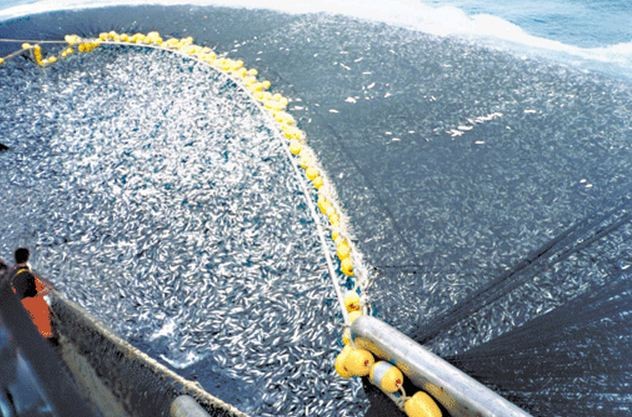The Earth's oceans are worth about US$24 trillion and yield annual economic services of US$2.5 trillion, according to the World Wide Fund for Nature (WWF), the world's largest conservation organization.
A study by the WWF ranks the annual gross domestic product of the Atlantic, Pacific, Indian and Arctic Oceans the seventh largest in the world behind the UK but ahead of Brazil, Russia and Canada.
WWF said the US$24 trillion is a conservative estimate and lamented people aren't restoring or protecting the oceans as much as they should. Put another way, people aren't investing in the growth and security of the oceans, which are irreplaceable assets benefiting us all.
The 60-page report, "Reviving the Ocean Economy", warns this ocean economy is on the verge of collapse with falling fish stocks, acidification due to rises in global carbon emissions and the accelerating degradation of coastlines. Most of these disasters are man-made.
The study noted these estimates are clearly an underestimate since they don't include offshore oil and gas and wind energy or "intangibles such as the ocean's role in climate regulation".
WWF prepared the analysis in association with The Global Change Institute at the University of Queensland and The Boston Consulting Group.
"The ocean is at greater risk now than at any other time in recorded history," said study lead author Ove Hoegh-Guldberg, a scientist at Queensland University.
"We are pulling out too many fish, dumping in too many pollutants, and warming and acidifying the ocean to a point that essential natural systems will simply stop functioning."
Hoegh-Guldberg and his colleagues outline an eight-point plan to save the oceans. Among the key parts of this plan is an ambitious climate change pact in Paris later this year and a specific UN Sustainable Development Goal for oceans.
Other steps WWF wants governments to take are declaring 30 percent of marine areas protected by 2030 (up from 10 percent in 2020); accounting mechanisms to work out the value of ocean services and the formation of a "Blue Alliance" of concerned maritime countries.
WWF International director general Marco Lambertini said he hoped an economic focus on the oceans would drive home the need for action to governments and corporate executives.
"The ocean rivals the wealth of the world's richest countries, but it is being allowed to sink to the depths of a failed economy. As responsible shareholders, we cannot seriously expect to keep recklessly extracting the ocean's valuable assets without investing in its future," said Lambertini.
"While they may have some knowledge of declining fish stocks, coral bleaching or mangrove deforestation, the implications and the scale of the impact on our well-being and prosperity have not sunk in," he said.
"We believe this new economic analysis, coupled with the scientific evidence, makes an undeniable case to move urgently beyond rhetoric to action."
According to WWF, marine fisheries, mangroves, coral reefs and seagrass alone have a value of US$6.9 trillion. Neglecting to protect these assets is the same as ignoring a fund that delivers a 10 percent annual return, the study said.






















